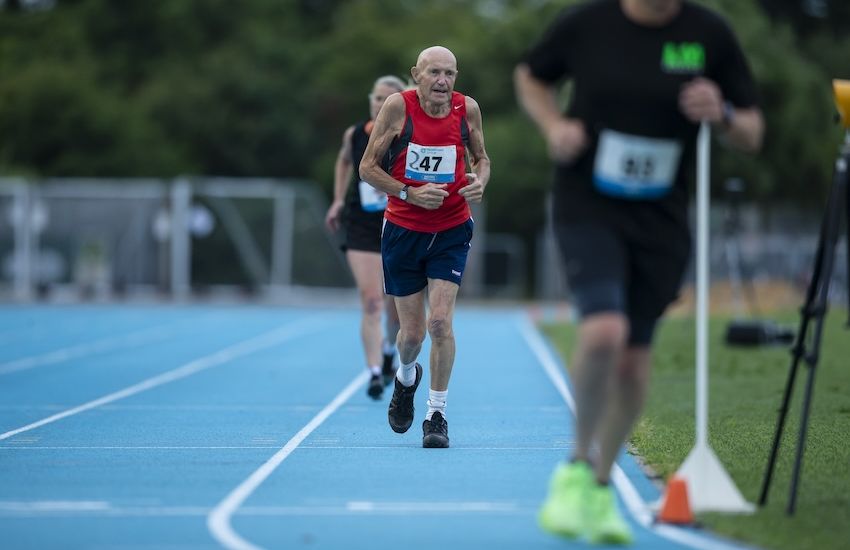

As Guernsey's population is getting older there has been plenty of discussion about how best to support and manage an ageing demographic.
Yet one of the most productive and enjoyable ways is often ignored – being active.
Express looks at the work being done by the Health Improvement Commission, the opportunities on offer and meets some of the inspiring people still taking part to find out more.
Activity is one of the most effective ways to age successfully even when bones seem to be creaking more.
Being active is important at all stages of life, and none more so than as we age.
It can not only help us to live longer, but crucially live better for longer.
On a personal level this is invaluable. And on a population level, this is vital to help manage the ageing demographic and its associated costs and pressures.
At the Health Improvement Commission, we know and publicise the benefits of being active as we age yet recognise there is no silver bullet to getting older people more active.
We know the activity level of an individual is often determined by more than their own choice to be active, leading to us adopting a systems-based approach. This means we recognise different determinants of being active and how they interrelate, rather than focusing on one component in isolation.
This is why we have introduced a range of initiatives. We focus on areas that have been proven to work by the International Society for Physical Activity and Health to increase activity levels as well as some of the aims outlined in the local Active 8: A Plan for Sport.
This includes working with healthcare professionals to ensure they are well resourced to have purposeful conversations with patients about being active.
Healthcare professionals often see some of the least active members of society who have the most to gain from even a small increase in their physical activity levels, including older adults and those with long term health conditions.
With research showing one in four adults would be more active if advised by a GP or nurse, their helpful contribution to supporting some of the least active to become more active should not be underestimated.
Everything that we do to support older people is shaped by some key principles: activities must respond to individual interests, be cheap, inclusive, fun, and non-threatening.
While the goal is to be active and stay active, it is important to recognise if you are currently inactive, starting to increase your activity levels gradually can have such a positive impact on your health and wellbeing. Being active can be achieved through daily living in many ways, whether that's walking or cycling to work, gardening, going to the gym or playing with your grandchildren in the park.
At the Commission we like to do as well as say and lead by example. Two of our staff are 'oldies' for whom physical activity remains a vital part of their lives.
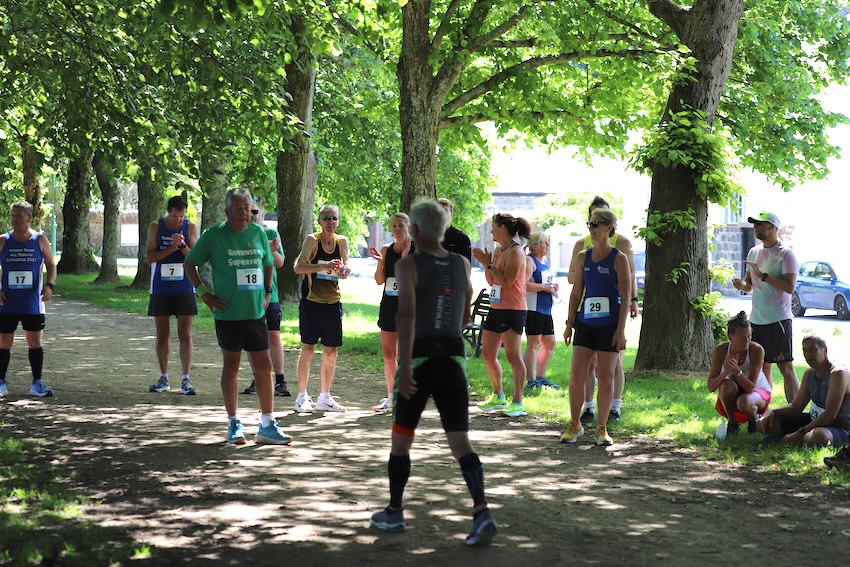
Pictured: Alun Williams (number 18) at the finish line of the second Masters Mile event.
Be Active lead, Alun Williams, will celebrate 40 years of running distance races in 2025.
His enthusiasm for running and being active is as strong as when he lined up for the first Guernsey Marathon in 1985:
"Being active is a key part of my life," he said.
"I run, cycle, or swim every day and still regularly compete in Guernsey Athletic Club races and parkruns. I wish I was as quick as I was in the good old days (the older I get, the better I think I was) but I enjoy it as much as I ever did.
"Events like the Masters Mile are great because they celebrate the relationship between ageing and activity. My top tip is don't be intimidated. Whatever you do be proud to be doing it when you are an oldie."
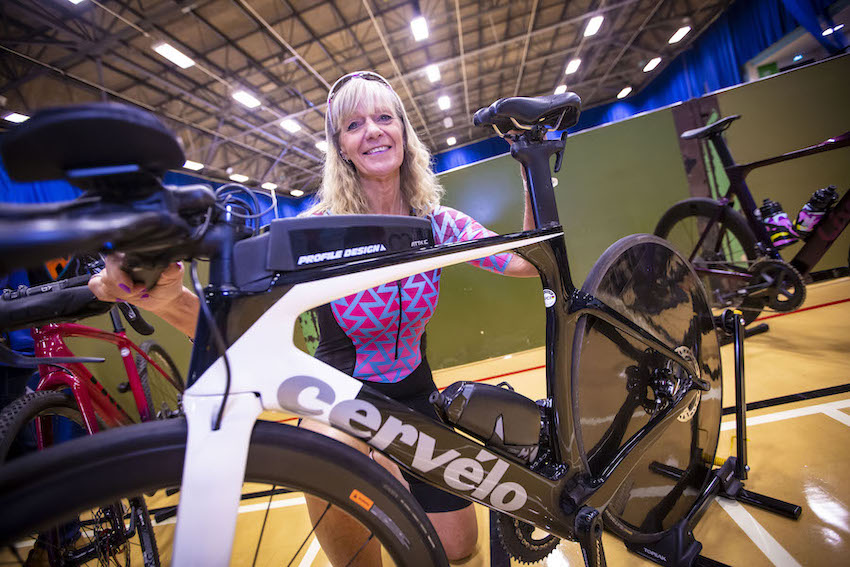
Pictured: Andrea Nightingale.
Andrea Nightingale, Substance Use Lead, also enjoys being active and took up triathlons at the ripe old age of 52 having found the love of cycling through the 30/30 Cycling Challenge raising money for Les Bourgs Hospice.
"The boys had grown up and I really wanted to find something to make me fit and healthy again but to also find a new group of likeminded people to enjoy training and have some fun along the way," she said.
"There were not many women my age doing triathlon but that made me even more determined to keep up with the younger ones and I loved it!
"Over the last 10 years I have travelled the world racing competitively in age group races and am probably fitter and healthier than I have ever been. I have visited countries I would never have seen, met the most wonderful people and made life – long friends. Never doubt yourself in anything you want to achieve, even the smallest thing. A little bit of drive, determination and commitment can work wonders! It's never too late "
Andrea now wants to inspire other women to join her and other like-minded ladies to join them in a new cycling group called Breeze Guernsey.
No lycra, no racing, just fun rides enjoying the beautiful and quiet lanes of Guernsey as well as our wonderful coastlines. There are rides for all ages (18+), all abilities and all road worthy bikes, including e-bikes.
"We want this to be as inclusive as possible and build the confidence of ladies who would like to group ride, feel fitter and healthier and ultimately enjoy the experience to hopefully organise their own rides long term. That would be amazing."

Pictured: Runners at the start of the Masters Mile.
This summer, Guernsey Athletics had for the first time hosted a series of mile events for those aged 50 and over.
People aged into their 80s have run, jogged and walked their way, while also taking the opportunity to socialise afterwards.
The Healthcare Group Masters Mile has been staged at Beau Sejour and the Footes Lane athletics track, and culminates on Thursday 8 August on the west coast within the annual Vazon Mile.
There is still time to take part in the last race for free if you sign up by Tuesday.
One of those who has been taking part is Healthcare Group GP Dr Nick Dunn.
Here he tells us more about the joys of taking part and the reason why:
"I am delighted that the Healthcare Group Master's Mile is proving successful in attracting people over 50 to an event which is accessible to all, and we hope this is an event which will grow.
I have personally enjoyed participating and it has helped further motivate me to be active. It is estimated that 40% of people spend more than six hours a day sitting still, and inactivity is the fourth largest cause of disease and disability so we are keen to promote activity for healthy living.
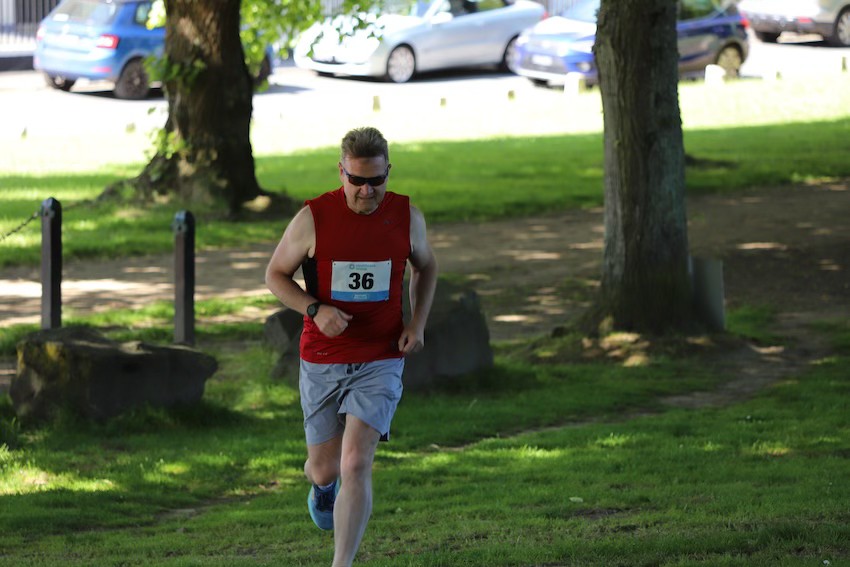
Pictured: Dr Nick Dunn.
Regular physical activity is essential for maintaining health and well-being, and counter-acts the effects of ageing. Scientific evidence indicates that 10 minutes of brisk walking each day can reduce deaths by 15%.
Physical activity which requires a moderate amount of effort and increases the pulse rate, ideally for 150 minutes per week provides the greatest benefits. It lowers risks of diabetes, cancer, heart attacks and strokes. It also reduces osteoarthritis, back pain and falls, and helps prevent depression and dementia.
Frailty is a progressive long-term condition which reduces the ability to bounce back after illness. It affects 20% of people over 70. However, being active helps fight against this.
You don't have to exercise to be physically active. It's never too late to become more active - the benefits are there for everyone, regardless of your baseline fitness. Even if we wanted, we would never find a drug which had all the numerous benefits of physical activity, and remarkably it's free for everyone!"
More than 60 people have taken part in the Masters Mile so far, here are some of them and their top tips:
Michael Way
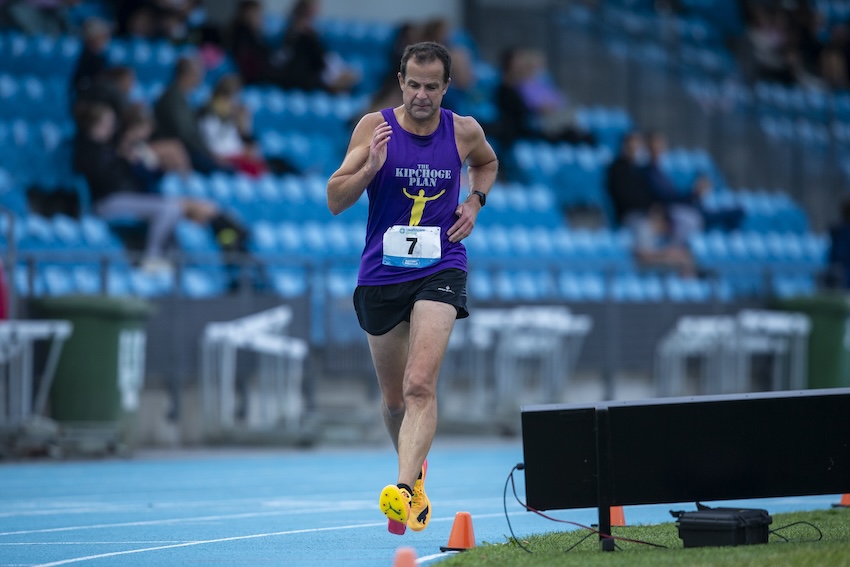
Current training schedule: Aims to run three to four times per week, covering 25-30 miles over the course of the week.
Best sporting achievement: Running his Marathon PB of 3:17:37 at the London Marathon 2021, which qualified him for the Boston Marathon which he ran in 2022.
Longevity tip: "Try to do a few miles every week- just keep it going even if it is just two or three miles. Run little and often to keep it ticking over."
Sam Ingrouille
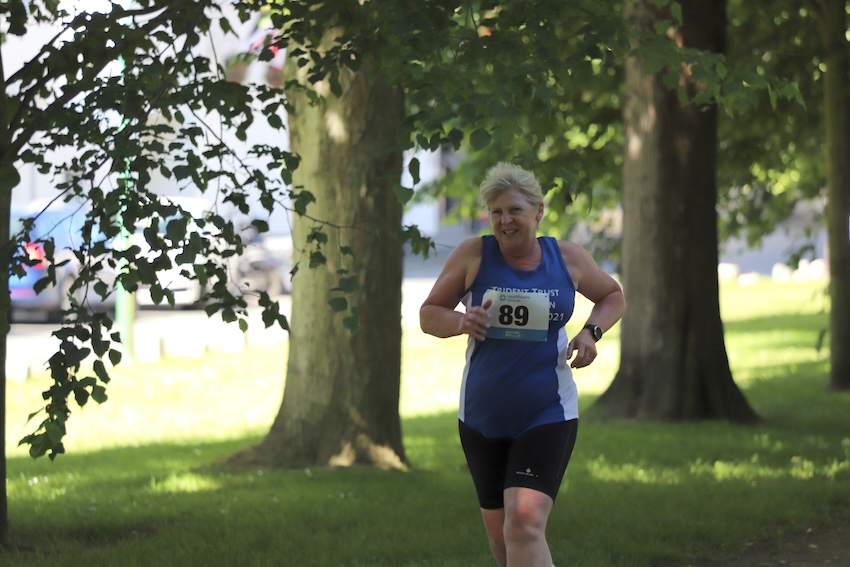
Current training schedule: Just getting over a knee injury which has held her back for three months but Sam has been doing lots of walking and swimming and is just starting to build up the running again. Sam was pleased to be coming out of injury in time for the second Masters' Mile.
Best sporting achievement: Completing the Guernsey Marathon in 2023 in 4:58.
Longevity tip: "It is all about consistency- just keep going!"
Vicki Joyce
Current training schedule: Aims to run three times per week. Also goes to the gym for cardio and strength work and has a weekly circuits class.
Best sporting achievement: Running the Boston Marathon in 3:41 earlier this year.
Longevity tip: "Realising the importance of balancing training and recovery as we get older; the rest days are as important as the training days. Also, the importance of incorporating as much movement as possible into your daily life- whether it is walking the dog or finding active ways to get to work."
Mick Le Sauvage
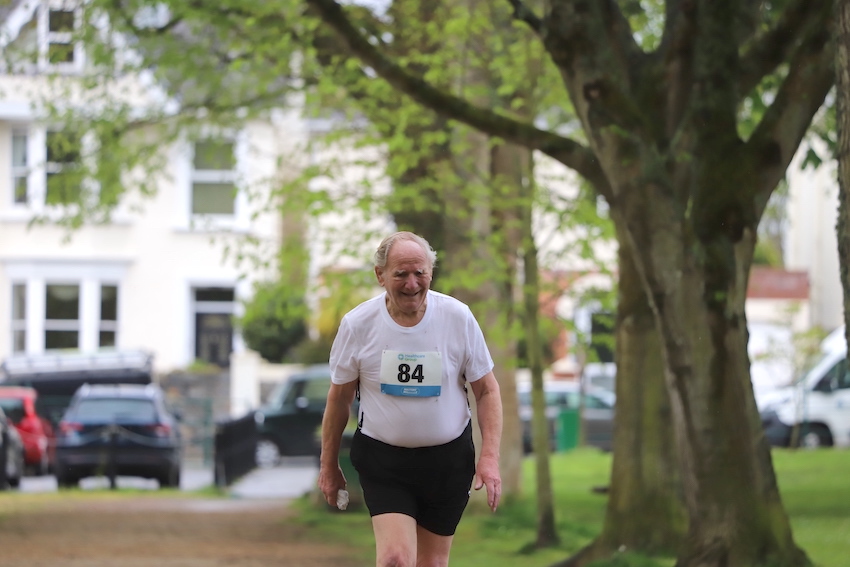
Current training schedule: A two mile walk every day.
Best sporting achievement: Completing a total of 48 Church-to-Church events over his lifetime, the most anybody has ever competed in. His first Church-to-Church was in 1959. He has also competed in many other race-walks over the years and has kept a log of the total number of miles he has clocked up as part of race-walking competitions- 8,200 miles.
Longevity tip: "Just try to keep your fitness!"
Rob Elliott
Current training schedule: "Going out for a stroll for one to one-and-a-half hours, three or four times per week"- although Rob's definition might be a bit different to what most people think of as a "stroll"!
Best sporting achievement: Representing Guernsey in the Commonwealth Games in Brisbane in 1982, achieving a PB of 2:24:28 in the 30k race-walk.
Longevity tip: "Keep churning the miles out- I started race-walking aged 11 and I don't plan to stop soon!"
Rick Mann
Current training schedule: Rick does a "Run-fit" session every Monday, a hard swim every Thursday and on Saturday does a brick session of a 15 mile bike ride followed by a 1 mile run. Between these sessions he does regular strength training using gym equipment at home.
Best sporting achievement: Rick's best achievement when he was younger was representing Guernsey in rugby at the Siam Cup in 1972. Nowadays his strength lies in triathlon. Recently Rick competed in Barry, Wales to achieve the qualifying time to represent GBR in the European Age-group Sprint Triathlon in 2025 (over 75s age group)!
Longevity tip: Hard work. When Rick is not training, he is busy in the garden and on his small holding. He cites the exertion of rearing sheep as excellent cross-training!
There is a wide range of opportunities for people to be active in Guernsey.
One of the growing ways is through Walking Sports.
The Guernsey Sports Commission recently hosted a seminar to have a conversation about the challenges faced, the barriers that need to be broken down and what might come next.
Comments
Comments on this story express the views of the commentator only, not Bailiwick Publishing. We are unable to guarantee the accuracy of any of those comments.